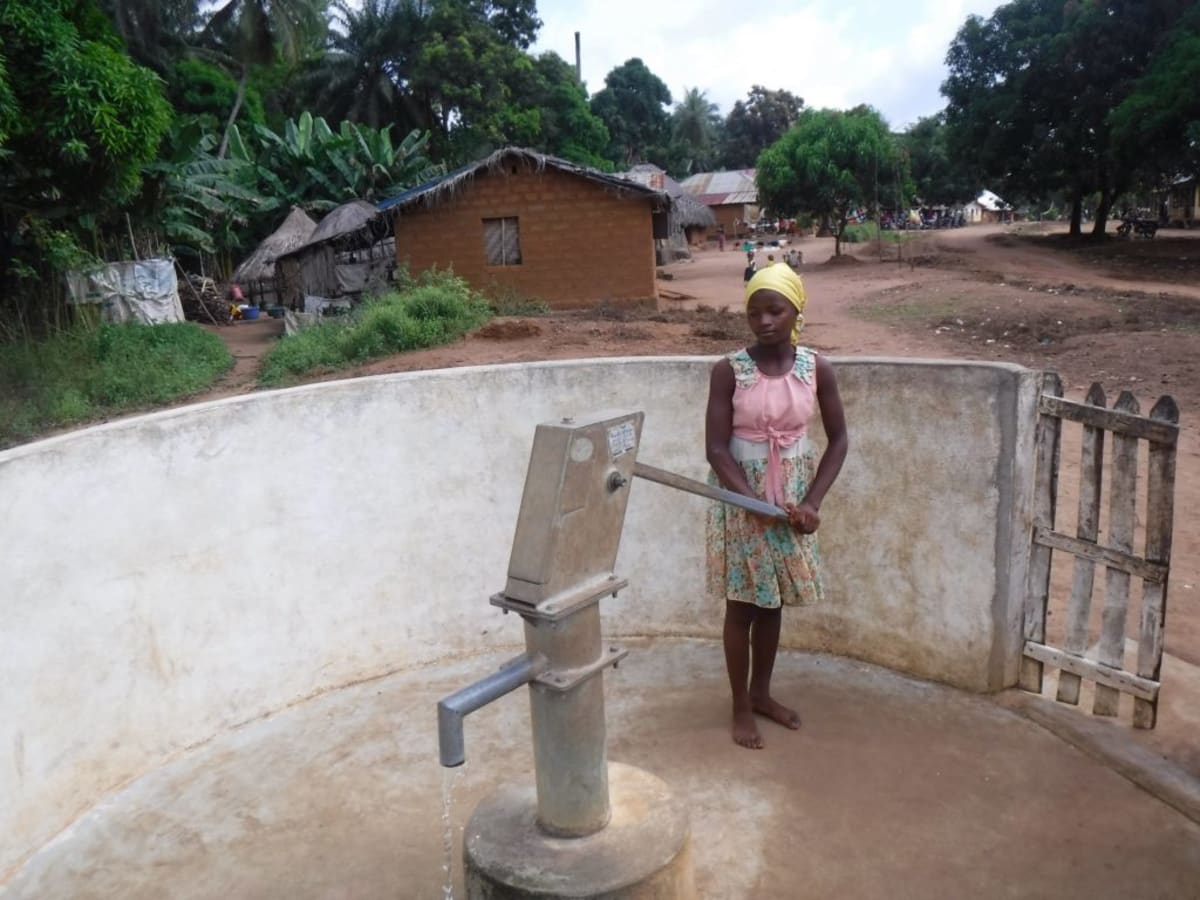The early bird gets the worm, is the best way to describe how Rotain Community life works for the 670 people living here. Rotain means the hill or mountain. The town on the hill according to the Temne language. The village is made up of Temne speaking people and the great thing about this part of the country is the mixture between the two dominant tribes of Temne and Susu. The large trees overhang and create great shade for people to escape the hot scorching sun. The homes are built on either side of the road with a few people that have decided to build away from everyone else.
Children's lives are never dull, from the crack of dawn to sunset; it is filled with work and more work. The young girls get up very early in the morning to fetch water and clean the environment. The best time to fetch water is very early in the morning and later in the afternoon. The community has an existing water point that has collapsed over three years ago. It has been challenging for people to get clean water.
The young boys have to tend to the farm. The most common livelihood is processing palm oil, palm kernel oil, and farming. There are two types of farming, dry and swamp farming. On the other hand, the men are responsible for providing for the family, and never in their lifetime do they carry water on their heads. The responsibility for water and household items rely solely on women.
There is only one water source for the entire village. Hard times come when the dry season is at its peak. The time when all once flowing water sources feel the pinch of the ever-increasing effects of climate change. The collapsed well contaminated, making the water that people collect from it unsafe for consumption. The dangers of going to the swamp or stream to fetch water, beyond the fact that the water is also unsafe for drinking, are too plentiful to list.
"We are tired of drinking water from the swamp," said Moseray Bangura, a local farmer.
"Because the only reliable water is at the swamp, so all chores requiring the use of water are done at the swamp, except cooking. We spend so much time at the swamp that only when it is nightfall do we get the opportunity to return."
What we can do:
New Well
We will be drilling this well at Rotain Village. This project will relieve the people here of the their water challenges.
Our team will drive over the LS200 mud rotary drill rig and set up camp for a couple of nights. Once the well is drilled to a sufficient water column, it will be cased, developed, and then tested. If these tests are positive, our mechanics will install a new India Mark II pump.
This community has been pushed to open contaminated well for their water. By drilling this borehole, Rotain Village will be provided with plenty of accessible clean drinking water.
Training
We will hold three consecutive days of hygiene and sanitation training for the entire community. We will focus on personal hygiene, safe water handling, and disease prevention, among other topics.
Community members will learn how to make a handsfree handwashing station called the tippy-tap. We will use these tippy taps for handwashing demonstrations, in addition to teaching about other tools and practices like using dishracks, clotheslines, and the importance of properly penning in animals to keep them away from human food and water. We will also highlight the need to keep restrooms clean.
Training will also strengthen a water user committee that will manage and maintain this new well. These leaders will be prepared to solve minor repairs and maintenance at the well, and they will enforce proper behavior at the water point. The committee will report to us whenever they need our help in solving a serious problem, like a pump breakdown.



 Rehabilitation Project
Rehabilitation Project

































